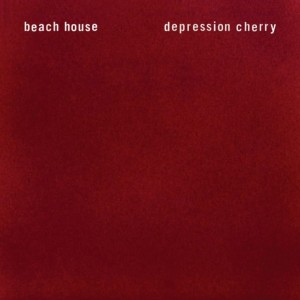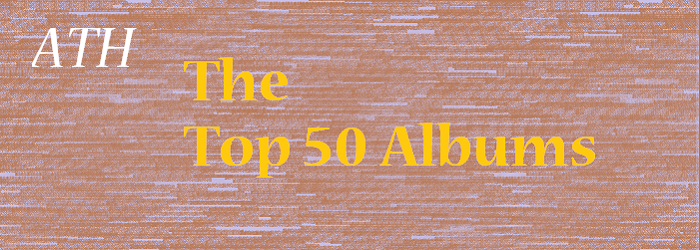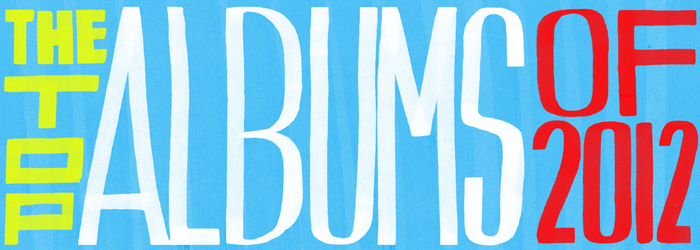 Rating:
Rating: 




Beach House and Dream Pop have become essentially synonymous these days, and rightly so; Alex Scally and Victoria Legrand have been cranking out the dreamiest tunes for a little more than a decade and Depression Cherry marks their fifth full-length release. 2010’s crescendoing and huge Teen Dream solidified their place as Dream Pop masters while 2012’s Bloom showed them exploring choppy percussion’s effect on their hazy and soaring tunes. So what does Depression Cherry have in store for us? In a press release written by the band, they called it “a return to simplicity,” but later mentioned their disdain for uttering those words. While they may not think fondly of this sentiment, it was a prematurely apt descriptor for the album.
Starting off with, “Levitation,” Beach House doubles down on this sentiment right off the bat. The familiar synth sound, fluttering guitar and Legrand’s whispery yet substantive vocals declare: “I go anywhere you want to” while the track warms up, making it feel like the band is reintroducing themselves to us. It’s far from a ‘simple’ song, but it’s mild in that each element seems to share the limelight with the others, soloing when appropriate and then blending back in. Near the end, Legrand urges us to follow her and Scally into the rabbit hole of Depression Cherry, repeating, “There’s a place I want to take you,” before the track slowly dissolves and folds in on itself and into the next song, “Sparks.” From this first song, what’s noticeably different is the smoothness and warmth of the sound here. The guitar is a little buzzier than before, filling the space with yet another hazy texture; Legrand’s vocals are there-and-not-there, fog illuminated by headlights, simultaneously lush and hollow; the drums are even and tempered, the synths ubiquitous. It’s the kind of track that makes you want to close your eyes and just listen to the subtle magic unfolding and its subtlety marks the rest of the album.
As I mentioned before, the last two albums from this band took definitively clear paths, so what may seem unsettling to listeners at first is the lack of this strong inclination as to where we’re going. Sure, there are strong numbers that you’ll immediately latch on to, but it may take a little while for some of the numbers to really hit you. For me, these initial winners were “Space Song,” and “Bluebird.” “Space Song” is third up, and it features sharp and emotionally cutting guitar riffs that just slice and float through the mix, screaming through the hypnotizing haze of synth and vocal. Later, “Bluebird” is a bit more of a groove, still sleek and simmering, but the guitar is tight and close to the rhythm in a darker fashion.
Even though this album doesn’t seem to strike a clear directional path like their last two albums, this seems to be part of the allure for fans of Beach House. Depression Cherry doesn’t aim to be anything other than dream pop and at the end of the album, you can’t fault Beach House for doing more of what they do so well. Upon first listen it may seem underwhelming, but over time it trickles in to your psyche song by song akin to waves lapping against the shore—instead of choosing a direction, it seems this album is bent on getting lost and not wanting to be found, suiting the dreamy genre perfectly. Spend some time with this album and you’ll find yourself in the same position.
 I really like this new track from Stone Cold Fox. There’s vocal bits that remind me of early Beach House, though I feel like you can hear just a little bit more of a soulful longing. Musically, the band has more of a sprawling noise based upon guitars rather than electronic washes, which definitely ups my enjoyment. And, the vocals remain the song’s focal point, accented by the stabbing guitar chords and machine-gun drum hits; it leaves you with a powerful impression that begs you to come back for more. The group release the Tunnel Vision EP next Friday.
I really like this new track from Stone Cold Fox. There’s vocal bits that remind me of early Beach House, though I feel like you can hear just a little bit more of a soulful longing. Musically, the band has more of a sprawling noise based upon guitars rather than electronic washes, which definitely ups my enjoyment. And, the vocals remain the song’s focal point, accented by the stabbing guitar chords and machine-gun drum hits; it leaves you with a powerful impression that begs you to come back for more. The group release the Tunnel Vision EP next Friday.











 Well, everyone else is doing it, so why don’t we? We’re going to toss out our top five albums of the year, except we’ll be doing it with our four main contributors, so hopefully that’ll mix things up a bit. Obviously, we’re only half-way through the year, so things are subject to change, and by things I mean our minds.
Well, everyone else is doing it, so why don’t we? We’re going to toss out our top five albums of the year, except we’ll be doing it with our four main contributors, so hopefully that’ll mix things up a bit. Obviously, we’re only half-way through the year, so things are subject to change, and by things I mean our minds.